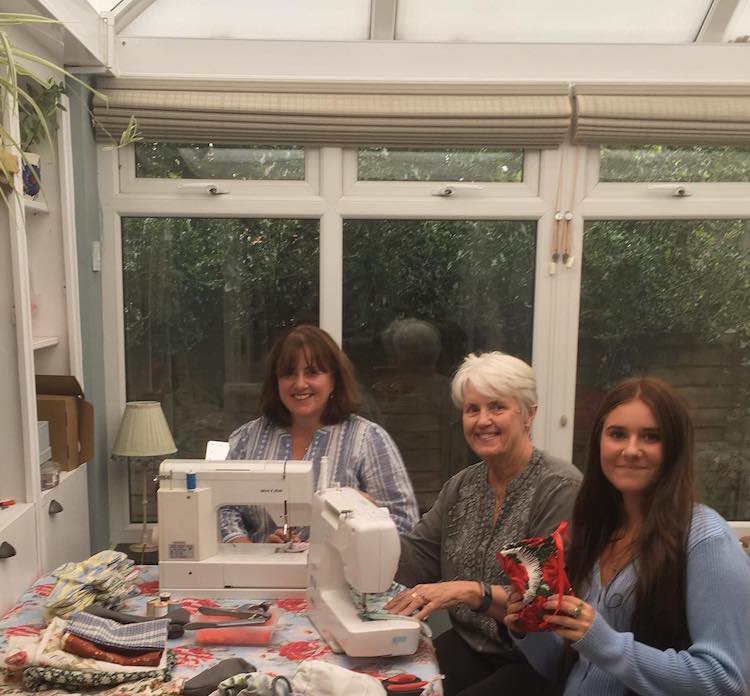
Sometimes we take for granted the resources that fulfill our basic human necessities—like access to food, clean water, and even hygiene products. However, for some people, those things don’t come so easily. Ella Lambert, a 21-year-old student in the UK, wanted to make a difference somehow, so she thought of a way to help women with limited access to feminine hygiene products. What started as a small project—inspired by her own experience with debilitating period pain—has now grown into a nonprofit organization with over 1,000 global volunteers. Lambert’s initiative, The Pachamama Project, aims to end period poverty and currently makes reusable pads and distributes them to refugees across Europe and the Middle East.
“I’ve always really struggled with period pain, like absolutely atrocious period pain which would mean that I’d have to miss out on school and cancel plans last minute,” Lambert says. “So although I’ve been really lucky, and I’ve never had to experience period poverty as such, I do know what it’s like to have to miss out on really important things and appointments because of my period.”
Lambert first learned to sew by watching YouTube videos during the lockdown in 2020. And when the restrictions extended into the summer and forced her to cancel her plans to do volunteer work abroad in refugee camps, she decided to exercise her new skill by sewing sustainable feminine hygiene products instead. “This seemed like a really easy way of combatting period poverty and making sure that people didn’t have to deal with that because they had the products they needed that would last,” she explains.
Though it started with just Lambert, her mother, and a university friend sewing the “Pacha Pads” from their kitchen table, now volunteers in the UK, Italy, Germany, France, and the U.S. are helping to make the patterned reusable pads from donated materials. The young entrepreneur decided to name The Pachamama Project after the Inca goddess of fertility, revered and celebrated by the Indigenous people of the Andes. Her “warm and charismatic image of sisterhood” seemed to fit the project and its mission perfectly, and now the influence of their volunteer work can be felt all over the world.
As part of her volunteer work, Lambert also recently visited a refugee camp in Lesbos, Greece to help with the distribution of the reusable pads and facilitate another part of the project’s mission. Her goal: teach local refugee women to make the Pacha Pads so they can sell them for a profit to NGOs, which then give them away to other refugees. This allows for those women to generate an income while also helping reduce period poverty in their own communities.
“I try to remember that you may not be able to save the whole world but you can give one person at a time the power to empower themselves”, Lambert explains. “Period poverty is everywhere but the stigma is ingrained in us. I think it’s a fun, creative way of normalizing it and feeling more comfortable about the subject.”
For more information about The Pachamama Project and how you can get involved, visit their website.
UK student Ella Lambert learned how to sew during the lockdown, so she decided to use her skills to start a nonprofit—called The Pachamama Project—to end period poverty.
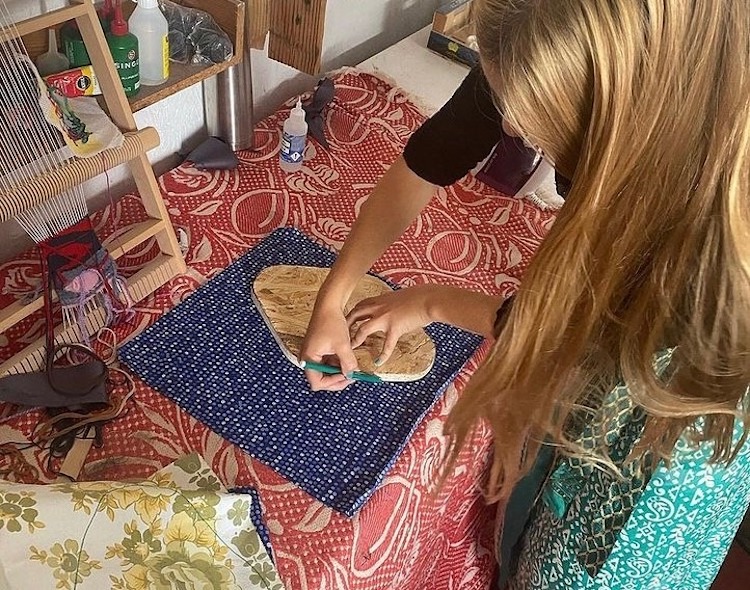
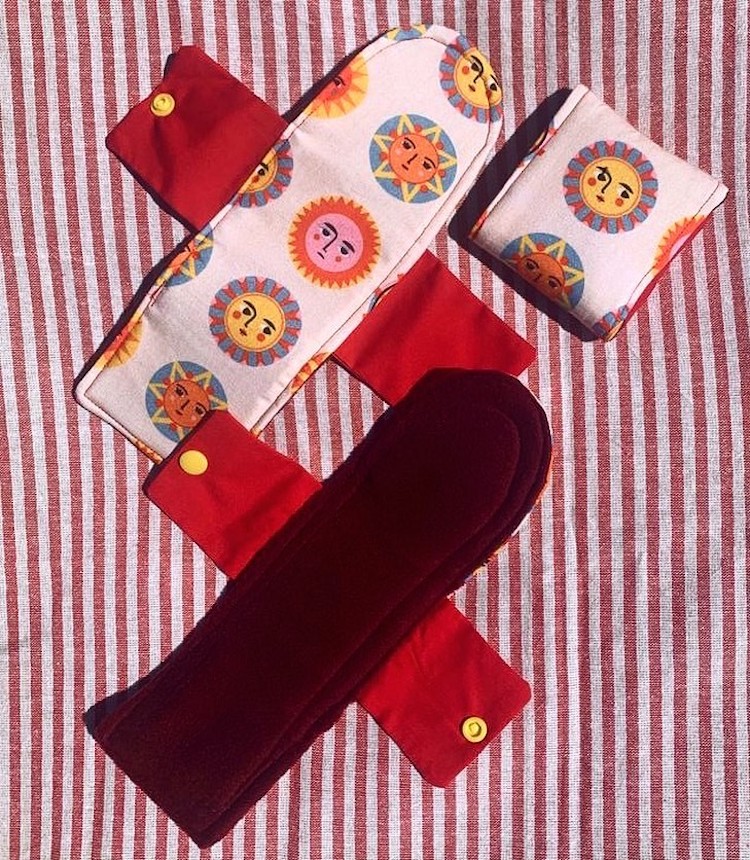
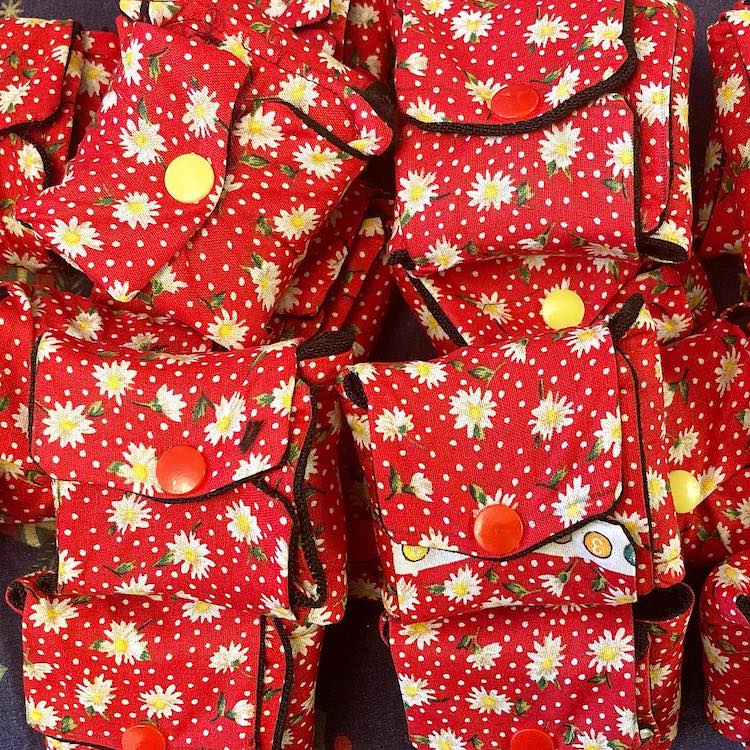
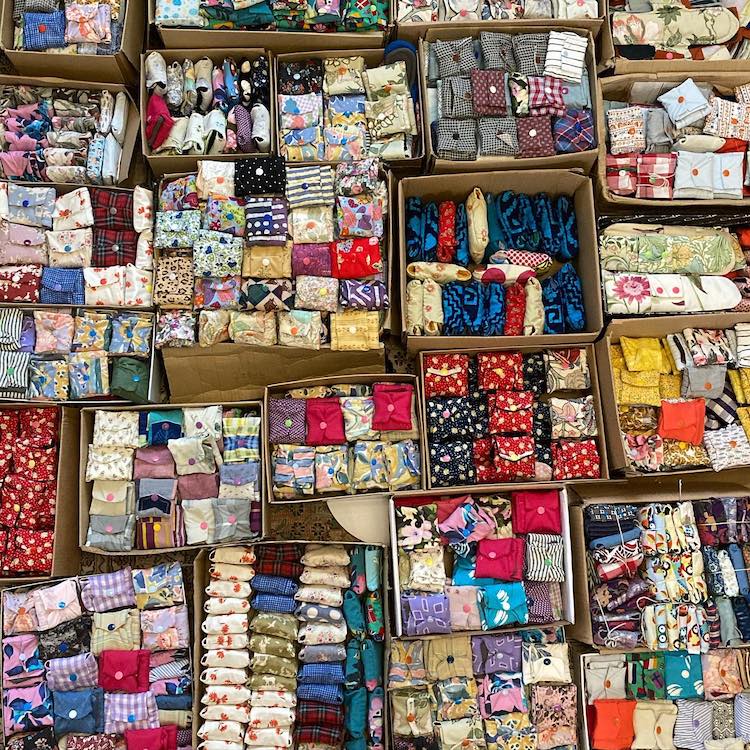
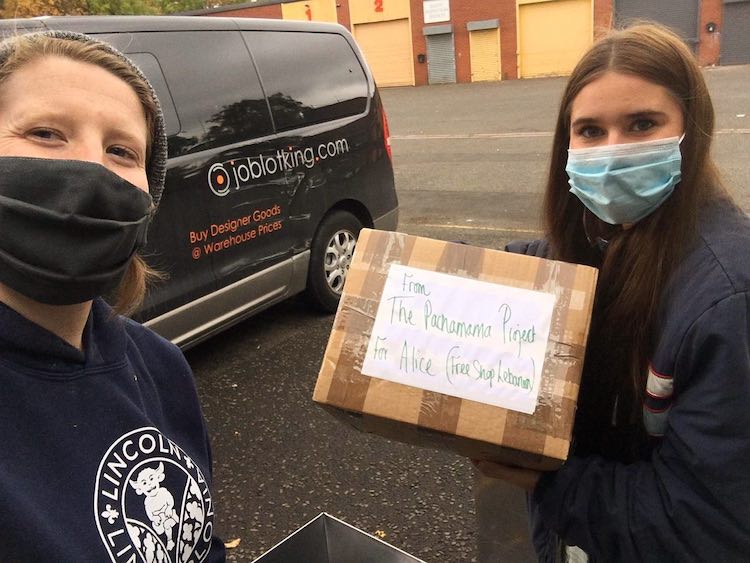
Since it first started in 2020, the organization has gained over 1,000 volunteers; made more than 30,000 reusable pads; and helped support 3,000 girls and women experiencing period poverty.
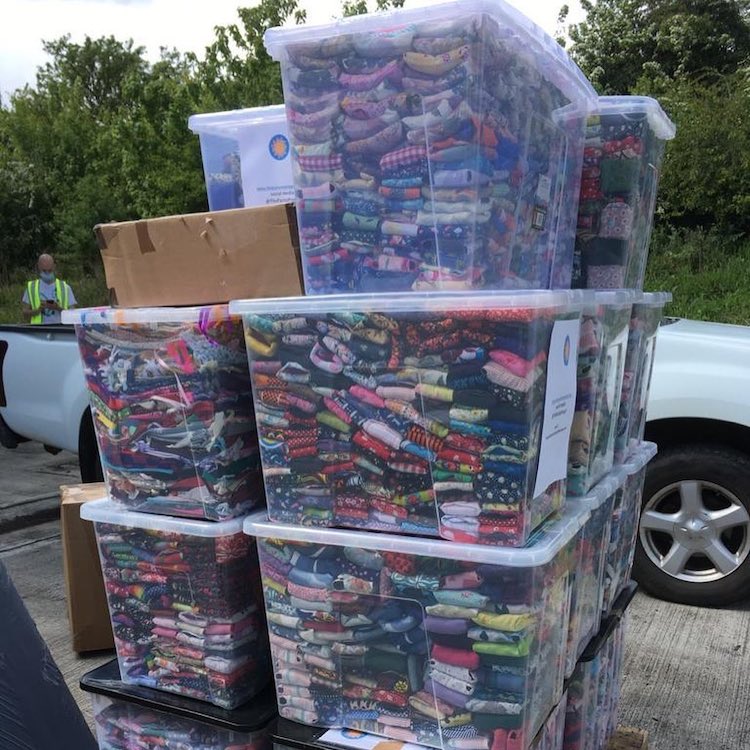
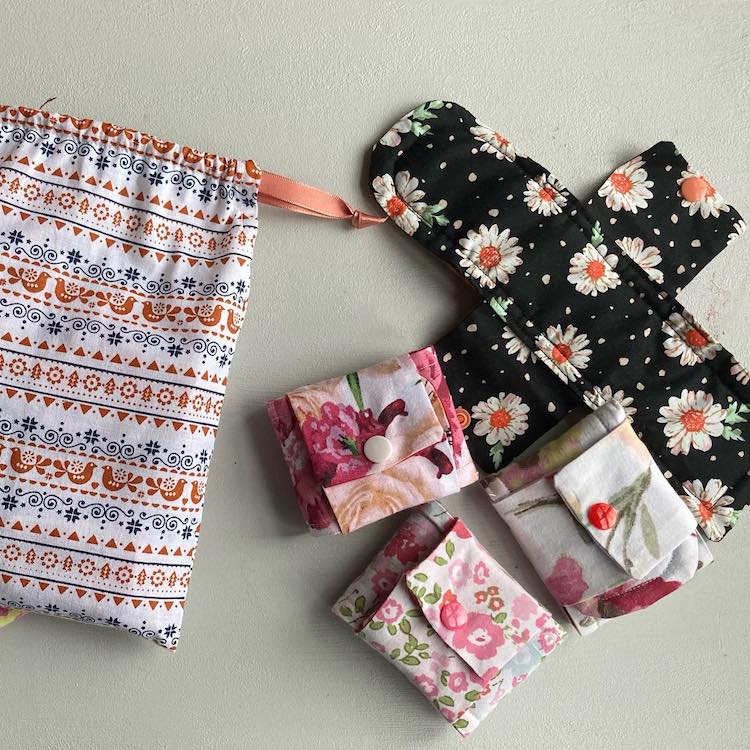
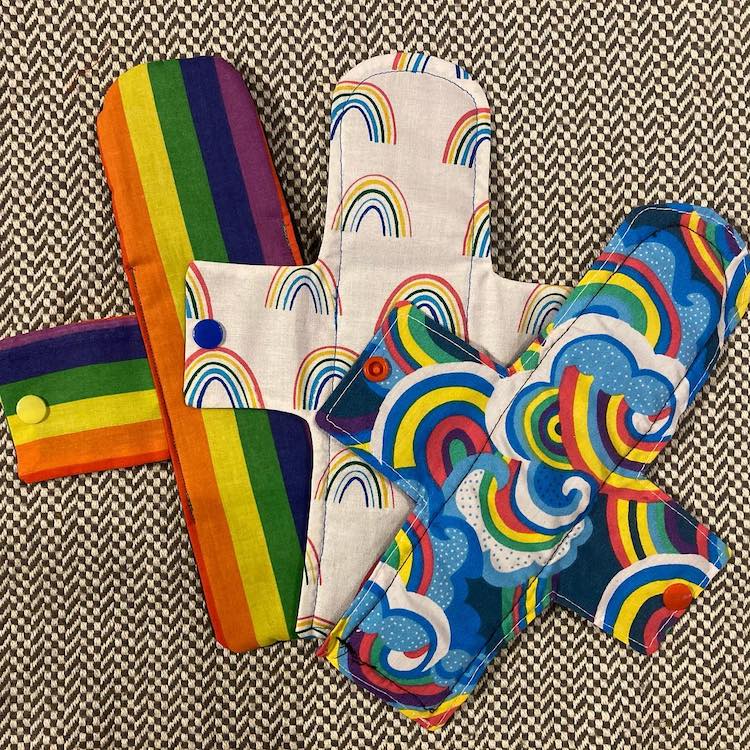
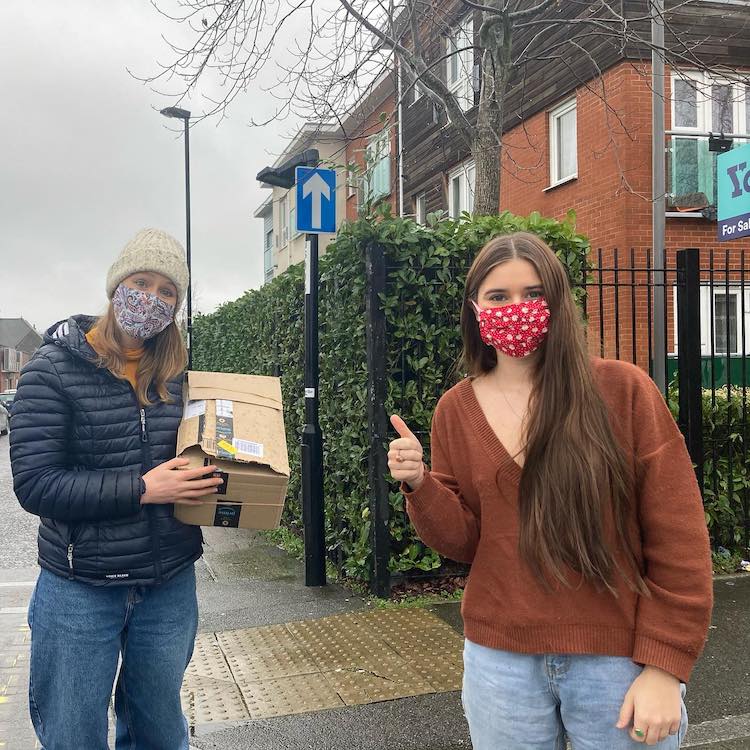
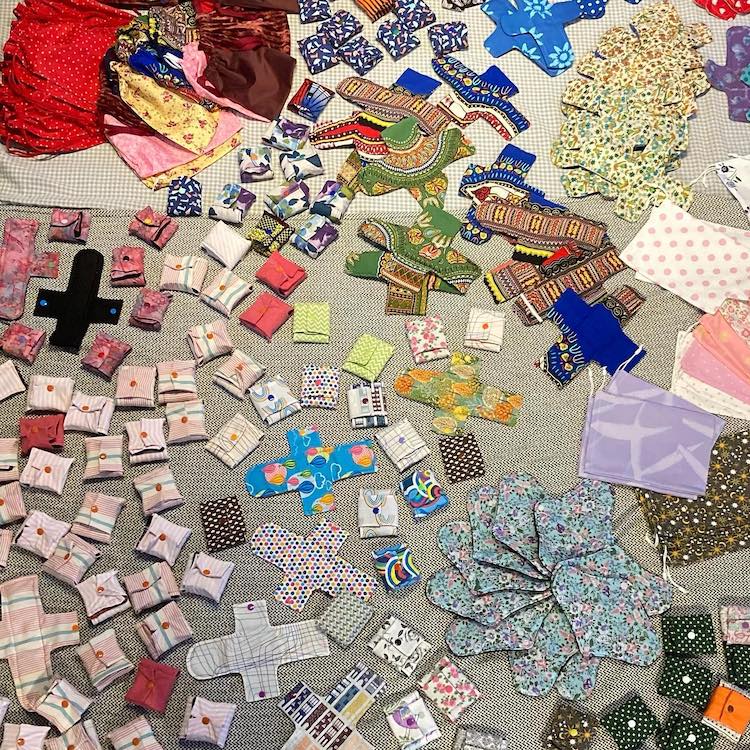 The Pachamama Project: Website | Instagram | Facebook | Twitter
The Pachamama Project: Website | Instagram | Facebook | Twitter
h/t: [Reddit]
All images via The Pachamama Project.
Related Articles:
Remarkable 13-Year-Old Uses “Make-A-Wish” To Feed People Experiencing Homelessness
Volunteers Gather in India to Plant 250 Million Trees to Combat Climate Change
Inventor of Hand-Cranked Washing Machines Donates the Timesaving Device to Iraqi Refugees
